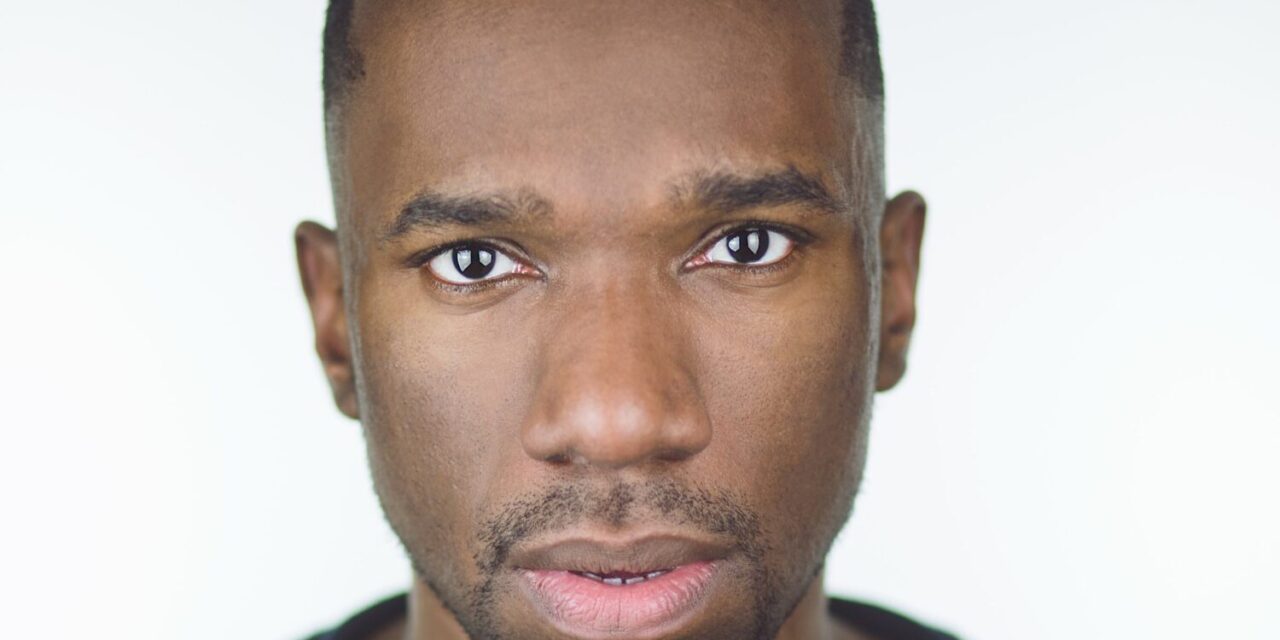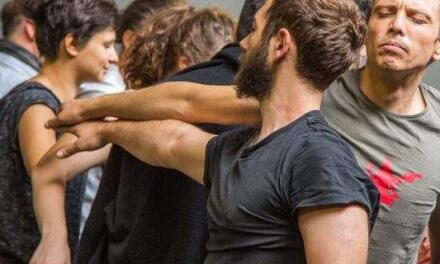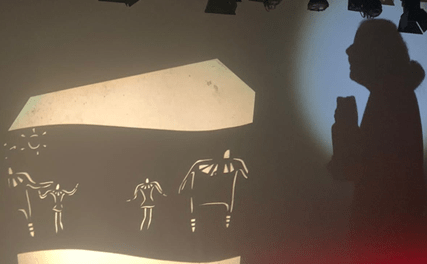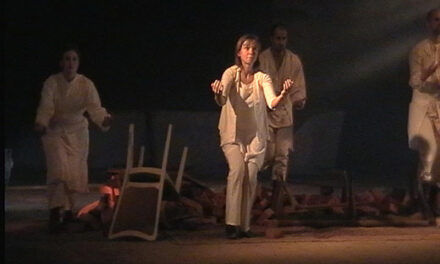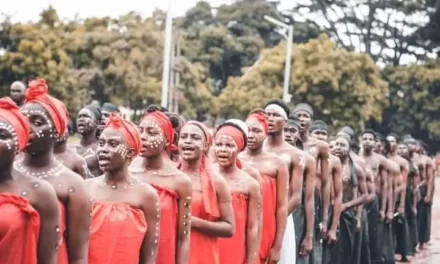Dear white folks (and institutions) seeking to be true allies,
Resist the urge to pat yourselves on the back. This process is never-ending.
If the following makes you defensive …
Good.
To start, it has been heartening to read much of the discourse from this past week focused on the latest visible cop lynching of an unarmed black man (George Floyd) and its subsequent aftermath. I’ve seen many black folks (particularly in the theatre) acknowledge, call out, protest, and speak truth to power on the various micro-aggressions they’ve encountered in their respective lives and careers navigating systemic racism. I’ve seen black and non-black folks sharing resources that amplify black voices, experiences, and thought from a genuine place of learning and unlearning. And I’ve witnessed some people that operate from a place of privilege finally begin an intentional journey towards self-accountability with their roles in upholding this insidious system. It is not enough, but it is the makings of a start.
On the flip side, I’ve been pretty disappointed by the calculated performance of activism put on by a host of white folks who just have to “show” how much they’ve been doing for the cause. White folks who post repeatedly with the implicit function of showing they’re the “good” white person. White folks and institutions who believe that hashtags and black squares suddenly erase their culpability in further propagating these underlying racist structures…racist structures rooted in the constant brutalization and erasure of black bodies for centuries.
I’m here to tell you that … we can tell.
We can tell when your intentions are pure, we can tell when they aren’t. We can tell when you are reaching out because you think you have to. We can tell when you are doing something because you made the calculation based on optics rather than true accountability. We can tell the people that have no intention of further reckoning with this system that benefits them once this uproar eventually calms down.
We can tell. We know. And you know. And if you think posting a statement and relying on solely optical allyship makes you an ally or safe space, you are mistaken. Check your intentions and leave all that stuff at the door. We have no time for that. Either you commit for the long haul or you don’t, but we won’t tolerate the performance of activism and solidarity without accountability moving forward.
Performative activism is a dangerous optical illusion when you implicitly intend to wear it as a badge of your “progressivism” without seeking a deeper reckoning with your privilege in everyday life. It deceives the eye, and appears as something other than what it is. It pretends to be about black lives, but actually seeks to elevate one’s self.
In simpler terms, this is not about you.
Live-tweeting your reactions minutes into watching a black documentary or reading black literature makes it about you. Writing posts about how you’ve been crying and overwhelmed by racism makes it about you. Writing a generic post about how you choose to live in love makes it about you… as if racism is simply a love issue… and not a complex, intricately woven, and endlessly codified Eurocentric social construction. Writing definitive statements about the black experience, such as “all black people are tired right now” makes it about you in a more implicit manner, and offends because black people are not a monolith and need not be infantilized by the white gaze. Yes, we’ve had to navigate this racist system all our lives, pragmatically navigating the system like it is a constant game of chess with life and death consequences, and many are understandably and unquestionably tired. But some of us are invigorated because, for the first time, a sizeable amount of non-black people are finally getting intentional about getting it (to the extent that they can).
Even if it “only” took a white cop lynching a black man for 8 minutes and 46 seconds on video in clear daylight, while institutions were shut down and everyone was stuck at home… Just think about that for a second…
Use your voice, but don’t make it about you. The most remarkable person I’ve ever known, my mother, taught me from a young age through her actions that integrity is holding onto the same principles and commitment whether people are watching or not. If you’re not doing the work when no one is watching, then your words on social media carry no weight. Often the folks engaging in this form of performative activism will use their optical badge of progressivism to justify implicit micro-aggressions of racism down the line. Such as making offensive jokes/insensitive remarks to that one person of color in your overwhelmingly white space. Claiming your black male colleague was too “aggressive” or your black female colleague too “bossy” or “sassy,” when they were simply speaking their voice in a non-deferential manner. Justifying how you’ve racialized spaces with the infamous “I can’t be racist, I have a black friend” mentality. Not here for it.
Now onto institutions…
In the past week, I’ve also seen overwhelmingly white theatrical institutions make statements on how they stand in solidarity with the black community. Some almost immediately, some after many days to calculate the optics of how it would play. Some saying all the right words, some posting tone-deaf faux “woke” messages, only to take them down after the subsequent public backlash. To me, all of it is meaningless if the commitment is not followed through by sustained accountability and action to fight against this deeply entrenched system for the long haul.
We all (should) know how much representation is and has been lacking in every aspect of the theater industry, and how this industry has upheld these underlying notions of racial inequity as much as any other capitalistic industry in this country. I’ve heard many a white person in the theater claim that it is a safe space, but as you can see…it absolutely is not. Look no further than the plethora of posts from my fellow black theater professionals in these past few days (and we’re still barely touching the surface), and you will find just how utterly pervasive and insidious it is. Just as most of us (black people) have multiple stories of egregiously racist interactions with law enforcement, many of us have just as many personal anecdotes dealing with the implicit micro-aggressions within “liberal” institutions like the theater.
Amid a pandemic, where the theater will most certainly have to adapt moving forward, and new financial models will need to be created, are these theatrical institutions prepared to continue (or start) to push increased, non-tokenized representation on all levels (on stage, on creative teams, in producing, behind the scenes, dramaturgically, etc) moving forward … even while fighting for their survival? Are predominantly white leadership teams in colleges ready to commit to faculties/curriculums that prioritize diversity and speaking truth to these embedded notions of power … in a non-tokenized manner? Are institutions of theatre criticism finally willing to break up their virtually all-white boys clubs, and decolonize the institutionalized notion that validity can only come through the white gaze? Will new financial models remain inaccessible and continue to ignore true meaningful outreach/engagement with audiences of color?
Remember that theater itself is a deeply political art form. We hold up a mirror to society. We allow people to identify and/or counter-identify with a representation of themselves and the world they live in. Representation is nothing to take lightly. To see yourself and your identity represented is spiritually healing and serves to validate your subjecthood. But the other side of the coin is just as piercing, because misrepresentation is often traumatic and internalized. Most of you likely took (and may still take) this for granted, because you’ve always seen yourself represented. We have not.
Representation and misrepresentation have been used to fuel discursive productions of identity globally and domestically for centuries, serving as a means to establish and preserve one group’s dominance while simultaneously serving as a justification for the dehumanization, subjugation, and expropriation of groups whose identities differ. This is Eurocentric imperialism and colonialism in a nutshell. This is racism in America: a codified, institutionalized, deeply ingrained system of misrepresentation as an epistemic tool of domination. And misrepresentation always makes its way to social pathologization through mass media, print, legal statutes, political ideologies, and so on. Research the Moynihan Report, and you’ll know what I’m talking about.
Edward Said goes into great detail about representation in the role of colonialism and its role in Western imperialism, in his 1978 seminal text, “Orientalism.” In imperialism, Western Europe (the occident) represented themselves as a benevolent force, the superior, “modern,” industrial, masculine, and powerful subject, while misrepresenting the East (the orient) as the primitive, stuck in the past, effeminate, and powerless other. In colonization, Europeans misrepresented Africa as an empty space full of savages and people who were facsimiles to wild animals… people who worshipped idols, were devoid of history, intellect, and civilization. Never mind that some of the most intricate, complex, and advanced civilizations of all time were in pre-colonized Africa. In America, the black community (and many other communities of color) are similarly misrepresented as backwards, criminals, welfare queens, aggressive, stuck in the past, less intelligent, and so forth. As history shows, none of this is true at all. But these representations/misrepresentations endure because they have been so deeply and intentionally embedded in our collective epistemes.
That is the power of representation.
Suffice it to say, the theatre and artists at large, have an enormous social responsibility.
Simply making a statement about a public lynching of a black man is not enough to make you an ally or a safe space … we’ve seen this time and time again. I repeat. Do not pat yourself on the back. The real work has barely begun. Talk is cheap without genuine intentions and follow-through.
Rhetorically speaking… Why does it take yet another inevitable highly visible public lynching of a black man to drive such a furor of reaction? Was Emmett’s mutilated body in an open casket not enough in ’55? Or the videos of Birmingham cops siccing dogs and hoses on black bodies in ’63? Or Rodney’s merciless beating by cops in ’91? Or Trayvon’s cries for help in the 911 audio from 2012? Or Eric Garner’s last pleadings as he was being choked to death on the ground in 2014? Or the many ones before, between, and after?
And when the uproar around this settles down, how will this affect your path moving forward? If the cyclical nature of history continues to serve true, for many, the honest answer is “it won’t.” Because it’s easy and comfortable to operate as you’ve always operated, in the systemically entrenched, predominantly white circles/echo chambers that you move in. Speaking out is all well and good if you are ready to follow through in a sustained way weeks, months, and years from now when this is another memory in line with Ferguson 2014, LA ’92, and the urban riots of the mid-60’s and the numerous others.
For weeks, I witnessed dozens of people on social media copying and pasting a status that misspells the name of a higher profile black male lynching victim from a year and a half ago. Literally dozens. Many being the same people who were posting about the importance of “saying their names.” That is a microcosm of what I am talking about. Movements are infinitely deeper than catchphrases and hashtags. Read the status you’re posting rather than rushing to use it as a badge of your “wokeness.” What good is it to tell people to #saytheirnames, when you don’t even take the proper time to know them…or their names? Research the cases fully. Take the time to know who these people were and the circumstances of their murders. Don’t rush to be the “good” white person. Don’t make it about you. Rather, rush to take in what’s going on for a deeper sustained overall understanding, and an understanding of your complicity in the matter. I’ve interacted with many white liberals that have operated with a similar mentality to Amy Cooper. They’ve posted on social media and even marched in protests. But at the end of the day, they still wield their privilege like a knife when it comes to their self-interests. None of this is black and white.
Being a true ally is more than mass posting when a highly publicized case of black suffering emerges…it is a 24/7, 365 sometimes 366 task. It is uncomfortable. It is daunting. It is inconvenient. It involves reckoning with your defense mechanisms and ego. It involves true listening, not the type of listening that is just waiting for someone to finish so you can jump in. It isn’t done for reward or progressive-cred. It is a constant looking in the mirror…evaluating and re-evaluating the spaces you operate in…evaluating how you make space for others…and the willingness to seek understanding and have difficult conversations off the grid…all while not patronizing, fetishizing, objectifying, or infantilizing people of color. If that sounds exhausting and impossible, welcome to a sliver of being black in America…
And it’s nothing compared to being relegated to an endangered species by a system that profits off of your dehumanization and criminalization.
This constant brutality has consistently been inflicted on black bodies in America for centuries. Even when it’s not on TV or littered all over social media. Just look at Breonna Taylor, a black woman killed by the cops in an abhorrent manner in the middle of the night on a no-knock warrant that had nothing to do with her…barely a mention of her in popular discourse. Or Atatiana Jefferson. Or Nina Pop. Do not allow the media to eliminate the intersectionality out of visible black death.
When the uproar quells down around this lynching of George Floyd (and the Emmett Till-esque attempted lynching by Amy Cooper), the system will still be inflicting black bodies. It is a foundational truth of this country. Rooted in the blood, sweat, and tears of black bodies defined as surplus and expendable since Jamestown 1619. While I am pleased that these necessary protests have forced extra arrests and an upgraded charge for George Floyd’s murderer, it doesn’t end there. Even if they all get convicted, it doesn’t end there. The true allies will find a way to not allow this to simply be another cyclical trend.
We currently have a genocidal administration (amongst many other deplorable attributes) that made a blatant shift in policy/tonality to defy experts and push premature reopenings all across the country amidst this highly deadly pandemic. All for the sake of the economy and winning elections. It is not lost on me that this shift occurred once they got the clear, hard numbers that this virus was disproportionately affecting black and brown communities…knowingly allowing tens of thousands more people to die because they’ve deemed them expendable.
If that blatant, genocidal, systemic racism that is tangibly costing black and brown lives at an accelerated rate doesn’t make your blood boil and drive you to action, then we have a problem. After the protests stop, and you have your next bout of quarantine fatigue, and just HAVE to violate social distancing…think of the black and brown lives directly affected that you say matter to you. If you want to be an ally, I repeat, do not treat this as a trend. Don’t just rely on the easily visible instances of black suffering to make you a social justice warrior. Power operates at its most efficient, lethal, and optimal level when it is allowed to remain invisible. It is easier to speak truth to power in highly visible instances, versus the normal day to day epistemic acts of violence that benefit you.
Speak the truth when the violence is invisible too.
And yes, I acknowledge that many white folks are espousing blatantly racist rhetoric and behavior in regards to these events. Folks who would rather use distractive tactics revolving around the semantics of language rather than seeking true understanding. This message isn’t about them. They are deeply dangerous in their own right, but it simply does not cut it as an ally to play the “they’re bad, I’m good” approach. Just because your complicity to the system isn’t as blatant, doesn’t mean you aren’t contributing to it. They are not a standard to be compared to in regards to being an ally. With that said, if these people are in your life, use your vantage point to engage with them off the grid, and have the difficult conversations. Persist. This is part of where the true work begins.
If you’re really in it for the long haul …
Let’s go.
Azudi Onyejekwe is a Brooklyn based Broadway actor, singer-songwriter, educator, social justice advocate, man of faith, and proud first-generation Igbo-American. He holds an honors degree from New York University with a double major in Africana Studies and Theatre, and is currently on the acting faculty of Molloy College-CAP21. Nwanne m nwoke.
www.azudi.net | Instagram and Twitter: @iamazudi
This post was written by the author in their personal capacity.The opinions expressed in this article are the author’s own and do not reflect the view of The Theatre Times, their staff or collaborators.
This post was written by Azudi Onyejekwe.
The views expressed here belong to the author and do not necessarily reflect our views and opinions.

